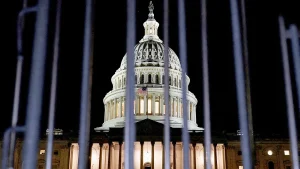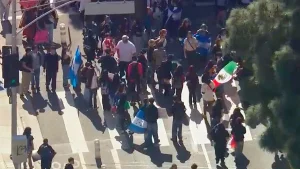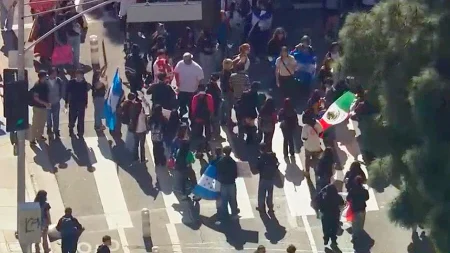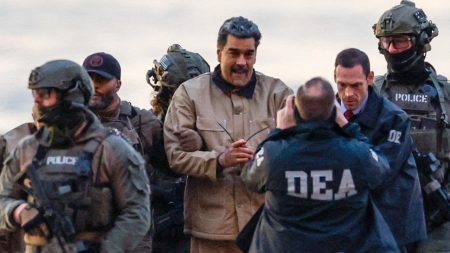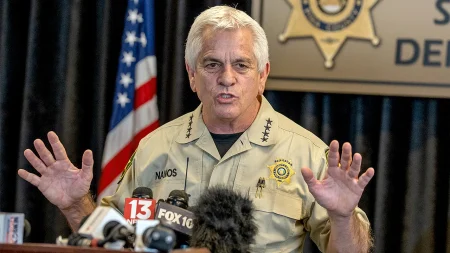Raila Odinga: Kenya’s Persistent Democratic Crusader
The Unfulfilled Presidential Dream of East Africa’s Political Titan
In the sprawling landscape of African politics, few figures have shown the tenacity and resilience of Raila Amolo Odinga. The Kenyan opposition stalwart, whose political career spans over four decades, stands as a testament to unwavering conviction in the face of repeated disappointment. Despite running for the presidency five times without success, Odinga’s influence on Kenya’s democratic evolution remains undeniable. His journey from political prisoner to democratic reformer encapsulates the complex narrative of Kenya’s turbulent path toward multiparty democracy, highlighting both the progress made and the challenges that persist in one of East Africa’s most significant nations.
Born into politics as the son of Kenya’s first vice president, Jaramogi Oginga Odinga, Raila’s destiny seemed intertwined with the country’s governance from the start. However, it was his own merit, strategic thinking, and grassroots connection that elevated him beyond merely being his father’s son. After receiving engineering education in East Germany during the Cold War era, Odinga returned to Kenya with technical expertise and political ideologies that would shape his approach to governance. The 1980s found him opposing the authoritarian regime of President Daniel arap Moi, a stance that resulted in his imprisonment without trial on multiple occasions. These years of confinement, rather than breaking his spirit, fortified his resolve and transformed him into a symbol of resistance against political oppression. His detention experiences became a crucial chapter in his political narrative, earning him credibility among Kenyans yearning for democratic reform and establishing him as a genuine freedom fighter rather than a typical power-seeking politician.
Architect of Constitutional Reform and Coalition Building
The early 1990s marked a turning point in Kenya’s political landscape, with Odinga emerging as a key figure in the movement for constitutional reform. Following international pressure and internal activism, Kenya reluctantly embraced multiparty democracy in 1992. Odinga’s Forum for the Restoration of Democracy (FORD) became instrumental in challenging Moi’s Kenya African National Union (KANU), which had dominated the country since independence. Though initially unsuccessful in unseating the incumbent regime, these efforts laid crucial groundwork for future democratic progress. Odinga demonstrated remarkable political flexibility throughout subsequent decades, forming strategic alliances that repeatedly reconfigured Kenya’s political landscape. His coalition-building skills were particularly evident in 2002, when he made the surprising decision to support his former rival Mwai Kibaki with the famous “Kibaki Tosha” (Kibaki is sufficient) declaration, helping end KANU’s 40-year rule.
The aftermath of the 2007 election perhaps best illustrates Odinga’s complex role in Kenyan politics. After a highly disputed vote count that many international observers considered fraudulent, Kenya descended into unprecedented post-election violence that left over 1,200 dead and hundreds of thousands displaced. While critics accused Odinga of inflaming tensions, supporters argued he was merely standing against electoral theft. The crisis eventually resulted in a power-sharing agreement with Odinga serving as Prime Minister under President Kibaki – a position created specifically to resolve the political impasse. During this tenure, Odinga helped shepherd through the 2010 Constitution, widely regarded as one of Africa’s most progressive governing documents. This reform decentralized power through devolution to counties, strengthened judicial independence, and expanded civil liberties – achievements that supporters count among his most significant contributions to Kenya’s democratic infrastructure.
Electoral Disappointments and Controversial Tactics
Despite his undeniable influence on Kenya’s democratic development, Odinga’s presidential ambitions have been repeatedly thwarted at the ballot box. His five unsuccessful presidential campaigns (1997, 2007, 2013, 2017, and 2022) have earned him the unfortunate distinction of being Africa’s most prominent perpetual presidential candidate. These defeats have been accompanied by controversy, with Odinga frequently alleging electoral fraud and manipulation. His legal challenges to the 2013 and 2017 election results demonstrated his willingness to use constitutional mechanisms rather than street protests alone. The unprecedented 2017 Supreme Court decision to nullify President Uhuru Kenyatta’s victory and order a new election – which Odinga eventually boycotted – represented both a vindication of his complaints and a milestone for judicial independence in Africa. However, his controversial self-inauguration as “people’s president” in January 2018 divided Kenyans and international observers alike, with supporters viewing it as justified civil disobedience while critics condemned it as dangerously undermining constitutional order.
Odinga’s political career has been characterized by surprising reinventions and pragmatic compromises that have sometimes alienated his most ardent supporters. The most dramatic example came in 2018 with the famous “handshake” between Odinga and President Kenyatta, his bitter rival from the two previous elections. This reconciliation, which effectively ended Odinga’s opposition role, puzzled many of his followers who had endured tear gas and police brutality while supporting his protests against Kenyatta’s government. The handshake led to the Building Bridges Initiative (BBI), which proposed significant constitutional changes that critics viewed as a mechanism to expand executive power and accommodate political elites. When the BBI was ultimately struck down by Kenya’s courts, it represented a rare defeat for Odinga’s political maneuvering. His subsequent presidential campaign in 2022, with Kenyatta’s backing against Deputy President William Ruto, completed a political realignment that demonstrated Odinga’s pragmatism but confused the ideological clarity that had previously defined his career.
Legacy of Democratic Advancement Amid Personal Disappointment
As Odinga approaches his 80s, questions about his legacy and the future of his political movement loom large. His supporters argue that history will remember him as a freedom fighter who sacrificed personal ambition for Kenya’s democratic advancement – pointing to his imprisonment under Moi, his support for Kibaki in 2002, and his role in the 2010 Constitution. They maintain that his presidential losses reflect not personal failure but the systematic manipulation of Kenya’s electoral system against genuine reformers. Critics counter that Odinga’s repeated allegations of election fraud, particularly after comprehensive defeats, have weakened democratic institutions by undermining public confidence in electoral processes. They suggest his political longevity has prevented generational leadership transition within Kenya’s opposition, concentrating too much influence within his Luo ethnic community around a single personality.
Despite these controversies, Odinga’s contribution to Kenya’s democratic journey remains significant. From fighting single-party dictatorship in the 1980s to championing constitutional reforms in the 2000s, his political career parallels Kenya’s gradual, though imperfect, democratic consolidation. Whether as opposition leader, prime minister, or African Union infrastructure envoy, Odinga has consistently advocated for institutional reforms over personality politics, even as his own personality has dominated Kenya’s political discourse. As Kenya continues navigating the challenges of democratic governance, economic development, and ethnic cohesion, Odinga’s influence remains evident in the country’s political framework. The constitutional reforms he championed have created more robust checks on executive power, while his advocacy for devolution has redistributed resources beyond Nairobi. For a man whose presidential ambitions have remained unfulfilled, Raila Odinga has nonetheless helped shape Kenya’s democracy in ways that may outlast the electoral disappointments that have defined his personal political journey.

